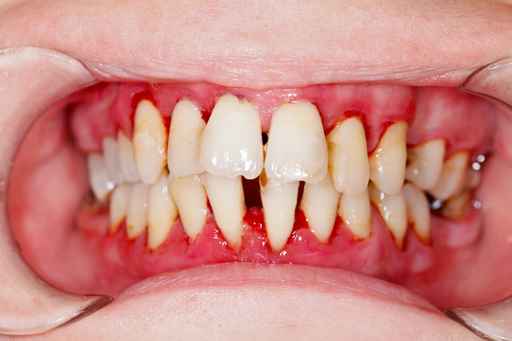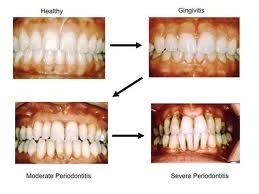Self-confidence, self-image, self-esteem—so much is wrapped up in the appearance and condition of our teeth, our mouths and our smiles. But did you know that hidden problems with your overall health can often be detected first in your mouth?
Good overall health starts in your mouth!
Increasingly, research is showing that there is a direct link between oral health and your general health and well-being. In fact, periodontal disease—disease of the gums and supporting bone—has been linked to a number of serious illnesses including lung disease, diabetes, heart disease and even preterm low birth weight babies.
Whether working in a dental office, a clinic, a hospital, a retirement home or in the community, your dental hygienist is a licensed oral health-care professional who is there every step of the way to help you ensure good oral health.

Gingivitis is an inflammation of the gums (known to doctors as the gingiva) caused by bacteria. Eventually the bacteria can get into the bones at the root of the teeth and eat them away. This latter stage is called periodontitis. It's a leading cause of tooth loss in the overall population and the number one cause in seniors...

One thing about halitosis is that even your best friend won't tell you. That's what they used to say about one of the most personal and often embarrassing problems commonly faced by millions of people. It is true that this can be a delicate subject. It is usually referred to as chronic bad breath, and anyone can have it no matter how carefully...
Risk Factors For Gingivitis
Smoking: Need another reason to quit smoking? Smoking is one of the most significant risk factors associated with the development of gum disease. Additionally, smoking can lower the chances for successful treatment.
Hormonal changes in girls/women: These changes can make gums more sensitive and make it easier for gingivitis to develop.
Diabetes: People with diabetes are at higher risk for developing infections, including gum disease.
Other illnesses: Diseases like cancer or AIDS and their treatments can also negatively affect the health of gums.
Medications: There are hundreds of prescription and over the counter medications that can reduce the flow of saliva, which has a protective effect on the mouth. Without enough saliva, the mouth is vulnerable to infections such as gum disease. And some medications can cause abnormal overgrowth of the gum tissue; this can make it difficult to keep gums clean.
Genetic susceptibility: Some people are more prone to severe gum disease than others.

